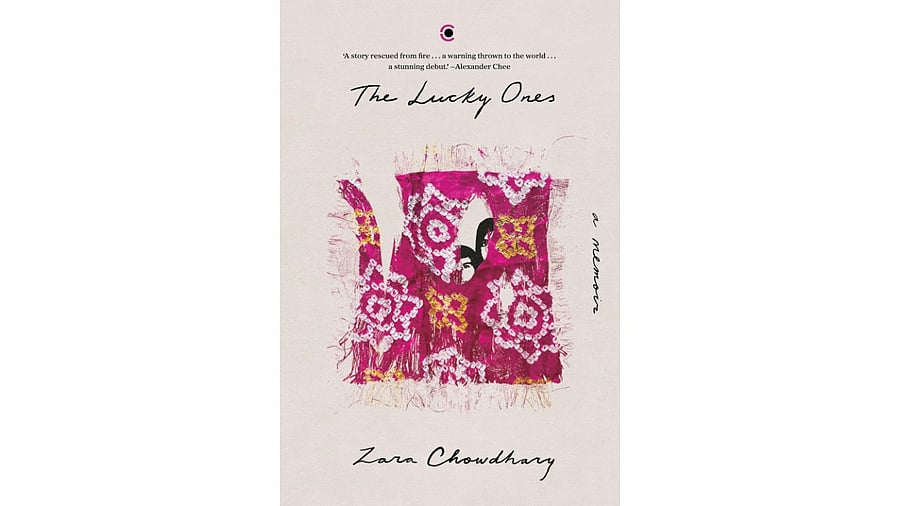
The Lucky Ones
Credit: Special Arrangement
In a town called Godhra in Gujarat, two bogies of a train were set aflame allegedly by a minority community. In retaliation, the capital city of Ahmedabad saw violent riots for three months. There is a Hindu-Muslim divide in India though most pretend to not see it and live despite it. The book’s setting is uneasy and loaded with explosive political details. Yet it pulls you in with the beauty of the writing and the honesty. It is difficult to read more than five pages without taking a pause, and yet, the reader must come back for more. That is the genius of the author, for giving an inside view of the events as they unfolded: in sparkling prose, with a clear recall of lived events and meticulous research for the larger realities. In The Lucky Ones: A Memoir is the hidden history of our nation’s open secret and Zara Chowdhary has created a sublime document that asks questions of the nation’s conscience.
It takes special skills to weave the personal with the historical, the story of her family with the politics of the subcontinent. Each of her stories has the wrench of homelands lost through Partition. This is done with unflinching attention to detail, even sordid ones like the murder of Bilkis Bano’s daughter even as she is being gang-raped or her father’s slow sinking into alcoholism. “The war of the day would slowly melt away. On these nights, Papa would drink less and even hug us goodnight. He would sleep undisturbed, his snores ringing through the contented halls of C-8. On this day each January the myth and the legend of Zaheer, my Papa, Jasmine’s heroic kite flyer, was safe and alive.” The author’s skill encompasses both. She is sworn to tell all the stories that burn within her. And her words are loaded with hurt and poignance.
It is the delicate balance between violence and life that brings the book alive and elevates it. No detail is too small. “Birds frozen in the giant neem and banyan trees that stand sentinel along our streets, holding their breath in their wings.” When she tries to describe our reliance on the macabre. “The grotesque is what fascinates us most. The grotesque allows us to choose. The grotesque is a box where we put everything we don’t wish for ourselves but we gawk at shamelessly when it afflicts another. The grotesque is a label we pin on the other so we may enjoy moral or physical superiority, the freedom to judge, to feel better off. That somehow, we were lucky to have escaped this rotten luck.”
The grisly details of the riots feel like those days are playing out again in slow motion, with greater clarity. This was different from other riots in India because this was allegedly systemic and every element of the system played its part in the unfolding. It is in her unstinting stating of the facts that the book turns.
This is also the story of losing homelands and becoming a nomad down generations. And she is not the only player. Her grandfather chose India over Pakistan. Mrs Pant remained in Jasmine Apartments even through the riots. In how she never hears from Gulshan again is the story of all our house helps; one rift and they disappear forever. Though the liftman, Daayabhai, is still at it.
It is a true memoir in the way she shares her life, thoughts and feelings and how she dives relentlessly to find the truth. “Our genocide wasn’t captured on mobile phone cameras, which is why a new generation of Hindu Indians looks at the scattered stories of our cleansing intrigued, unable to draw lines between cause and effect. They don’t remember where the whispers that made us ‘the other’ started.” This is perhaps her attempt to remind us all of the horrors of the past in the best way she knows: by writing an unforgettable book about it. “And my uprising is to keep this story writ into history no matter how much erasure stamps over it.”